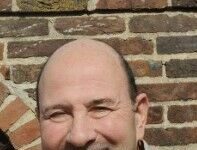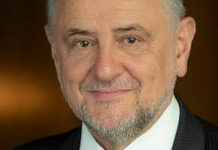
Photo courtesy of Sarah Leavitt
By Sarah Leavitt
My first abortion clinic escort job was in Madison, Wisc., where I grew up. My best friend’s mom was an abortion provider, and we would sometimes volunteer at her clinic on the weekends. Not that often — it was high school, I was very important and had things to do — but it was a crash introduction into some good, old-fashioned hysterical vitriol.
The main training was: Talk to the patient about the weather, don’t look up, don’t engage, don’t scream into the void about how people should mind their own business. Remarkably, given my own general inability to keep my thoughts to myself, I was pretty good at it and never got in trouble for yelling back. My friend’s mom was Jewish and all the protesters were Protestant or Catholic, though I’m not sure I would have couched abortion rights in the language of religious freedom back in high school.
Later, when I lived in Rhode Island, another (also Jewish) friend and I volunteered as clinic escorts once a month for a while. It was exhausting. Mostly, I remember being screamed at and, again, following instructions to talk about the weather. My first job in college was at Planned Parenthood. It was my task to check people in and show them into the waiting room. At the time, this was a much calmer situation, with nobody yelling. I doubt they are feeling so calm at that clinic this month.
At the Capital Jewish Museum, where I am a curator, we talk a lot about “praying with your feet,” the idea that participating in political rallies and protests is a way that we walk our Jewish values. I’ve been to a lot of protests in my day, but honestly, for a person who was born only a few years before Roe v. Wade and therefore has only ever had sex in a world where choice was available to me, it surprises me to realize how many of those protests have been to protect eroding abortion rights. I have marched on state capitols — but of course marching in Washington, D.C., has a different valence.
One interesting thing about having a collection of protest signs at Capital Jewish Museum is being able to watch how the rhetoric and language changes from era to era in various movements. We do not have a particularly strong collection of abortion-related material, but we did some collecting at the recent rally organized by the National Council for Jewish Women, and one thing is clear — many Jewish organizations have come out with specifically Jewish language to talk about the need for abortion access. I appreciate this connection, which had not been previously part of my vocabulary of march slogans and posters.
In 1989, I took a bus to Washington to march with my cousins — one worked in a women’s health clinic, the other for a senator — in the “Mobilize for Women’s Lives” rally, 300,000-people strong, at the Lincoln Memorial. One of the co-sponsors was B’nai B’rith International, and though this was not marketed as a “Jewish event,” everybody I was with was Jewish. At the time, organizers felt concerned that Roe was in danger. I’m not sure I really believed it then.
At the March for Women’s Lives in 2004, I joined a Jewish college friend who grew up in Montgomery County. We both had young kids, and proudly held the “pro-choice/pro-child” signs while also holding the toddlers. I’m quite sure that if we’d seen a sign that connected Jewish values to abortion access, we would have held up one of those. But the connections between our Jewish values and our marching seemed more on about the marching than the abortion itself. Thirteen years later, those same kids were teenagers, and — being the hoarder (I mean museum curator) that I am, I still had the very same sign to hold when we took the kids to the Women’s March in January 2017.
And then one day I went to an abortion rights march at the Supreme Court with my rabbi (from Temple Shalom, in Chevy Chase). We spent the day at the Consultation on Conscience, sponsored by the Union of Reform Judaism’s Religious Action Center, in May 2019, speaking to our congressional delegation about DACA. Walking back from the Rayburn Building, we came across a demonstration protesting encroaching abortion bans at the state level, and of course we jumped right in. The signs this time all used the word “abortion” instead of “pro-choice,” but none of them said anything about Jewish values. However, at this rally, since I was with a group of Jewish women (including our rabbi), I finally started thinking about my lifetime support of abortion rights as a Jewish issue. Abortion is not only condoned but even mandated in certain circumstances (especially to protect the life of the mother, which has been interpreted broadly by many rabbis) by halachah, Jewish law. I am not a strict follower of halachah by any means, but as a Reform Jew I am certainly gratified to understand the ways that my religious tradition can inform my political activism. My belief that pregnant people must have the agency to make decisions about their own bodies, lives and reproductive health has always been strong, but couching this understanding in a framework of living Jewishly is something I cherish.
Working for the Capital Jewish Museum is the first time in my career that my work life has intersected with my religious life. It’s a heady feeling sometimes, never more so than on the morning of May 17, 2022, when we canceled the all-staff meeting so that most of us could head down to the Capitol grounds for the Jewish Rally for Abortion Justice, held in the days after the leaked memo from Justice Samuel Alito. Not all our staff is Jewish, which made the excursion and the speeches even more significant to me. I’m not in high school anymore, so of course I realize that there are religious and non-religious people of all backgrounds who support abortion access (and those who don’t). I love the idea that our museum can help visitors understand what it means to “pray with your feet,” even if you’re not the praying type — to get out in the streets and hold up those signs. So many people do the daily work of helping pregnant people get access to an abortion when they need one, and they need our support.
My stint at Planned Parenthood is 30 years behind me; my job is different now. But working for a museum that walks its values can make an impact, too. Standing at the rally with my co-workers meant so much to me because we were enacting one of the museum’s central principles — to get out into the world and to act. As political philosopher Michael Walzer wrote in “Exodus and Revolution,” “there is no way to get from here to there except by joining together and marching.”
Sarah Leavitt is a curator at the Capital Jewish Museum. This piece originally appeared on the museum’s blog.





